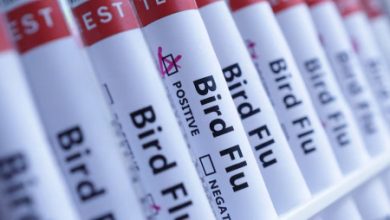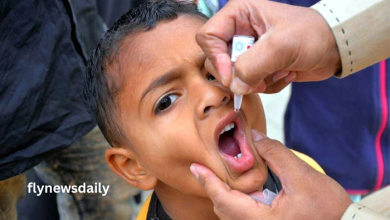
Understanding HMPV: A Silent Respiratory Threat
The Human Metapneumovirus (HMPV) has emerged as a significant health concern in 2025, particularly with the recent outbreak in China. This virus, known for causing respiratory infections, has been on the radar of global health authorities due to its ability to spread quickly among vulnerable populations. HMPV belongs to the Paramyxoviridae family, sharing similarities with respiratory syncytial virus (RSV) and the parainfluenza virus.
What is HMPV?
HMPV primarily affects the respiratory system, leading to symptoms ranging from mild cold-like manifestations to severe complications such as bronchitis and pneumonia. While it can infect individuals of all ages, young children, the elderly, and immunocompromised individuals are at the highest risk.
Key Symptoms of HMPV
- Mild Symptoms: Fever, cough, nasal congestion, and sore throat.
- Severe Symptoms: Shortness of breath, wheezing, chest pain, and high fever.
- At-Risk Groups: Children under five years old, older adults over 65, and individuals with pre-existing respiratory conditions.
The 2025 HMPV Outbreak in China: What We Know So Far
Origins and Spread
The current outbreak was first reported in densely populated urban areas in China, where colder temperatures and high levels of air pollution have exacerbated the spread of respiratory illnesses. As of January 2025, thousands of cases have been confirmed, with a significant percentage requiring hospitalization. The World Health Organization (WHO) has categorized this outbreak as a “global health priority” due to its rapid transmission and potential for widespread impact.
Transmission Dynamics
HMPV spreads through:
- Direct Contact: Physical interaction with infected individuals or contaminated surfaces.
- Respiratory Droplets: Sneezing, coughing, or close conversations.
- Community Settings: Schools, public transport, and healthcare facilities are high-risk zones.
Preventative Measures: How to Stay Safe
1. Personal Hygiene
Maintaining stringent hygiene practices is critical in preventing HMPV infection. Follow these steps:
- Wash Hands Frequently: Use soap and water for at least 20 seconds, especially after being in public spaces.
- Use Sanitizers: Alcohol-based hand sanitizers can be effective when soap is unavailable.
- Avoid Touching Face: Reduce the risk of introducing the virus through your mouth, nose, or eyes.
2. Masking and Social Distancing
Given the airborne nature of HMPV, masks remain an essential protective measure:
- Wear high-quality masks such as N95s in crowded areas.
- Practice social distancing by maintaining at least a six-foot distance from others.
3. Strengthen Your Immune System
Boosting immunity can reduce the severity of HMPV infections:
- Consume a diet rich in vitamins C and D, zinc, and antioxidants.
- Engage in regular physical activity to enhance overall health.
- Stay hydrated and get adequate sleep.
4. Vaccination Developments
Although there is currently no specific vaccine for HMPV, researchers are working towards developing one. For now, ensure your vaccinations against other respiratory illnesses, like the flu and pneumonia, are up to date.
Recognizing and Managing HMPV
When to Seek Medical Attention
Prompt medical care is crucial if you or a loved one experience:
- Difficulty breathing or persistent chest pain.
- High fever unresponsive to over-the-counter medications.
- Severe fatigue or confusion, particularly in elderly individuals.
Treatment Options
While no antiviral medication specifically targets HMPV, treatment focuses on relieving symptoms:
- Over-the-Counter Medications: To manage fever, cough, and nasal congestion.
- Supplemental Oxygen: For patients with severe respiratory distress.
- Hospitalization: Required for individuals with complications such as pneumonia.
Quarantine and Isolation
To curb the spread, adhere to the following:
- Isolate for at least seven days if symptomatic.
- Notify close contacts to monitor their health.
Global Implications of the HMPV Outbreak
Impact on Healthcare Systems
The surge in HMPV cases has placed immense pressure on healthcare systems in China. Hospitals are grappling with bed shortages, particularly in intensive care units. Healthcare workers are at the forefront, managing patient loads while trying to protect themselves.
Economic and Social Ramifications
- Economic Disruptions: The outbreak has affected workplace productivity and led to supply chain delays in sectors reliant on labor.
- Travel Restrictions: Many countries have issued advisories for travel to affected regions in China, impacting tourism and international business.
Lessons from Past Outbreaks
Comparison with COVID-19
The HMPV outbreak has drawn comparisons to the early days of the COVID-19 pandemic. While HMPV is less severe, its ability to spread rapidly highlights the need for swift and coordinated responses.
Strengthening Public Health Systems
This outbreak underscores the importance of:
- Investing in early detection systems.
- Ensuring adequate stockpiles of protective equipment.
- Promoting community awareness about respiratory health.
Conclusion
The HMPV outbreak in China in 2025 is a stark reminder of the importance of vigilance and proactive measures in managing respiratory illnesses. By adopting robust preventive strategies, staying informed, and seeking timely medical care, we can mitigate the impact of this outbreak. Governments, healthcare institutions, and individuals must work collectively to contain the spread and protect vulnerable populations.



